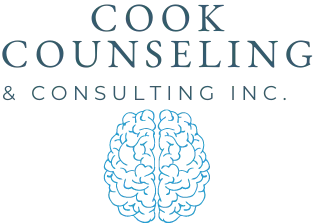Do you struggle to make a strong connection with another person, may it be your colleague, friend, professor, or spouse? There may be psychological trauma of unmet childhood needs that haunt you and prevent you from forming meaningful relationships. Learn below how such trauma can affect a person’s ability to navigate society.
Issues With People Suffering From Unmet Childhood Needs
If a child’s emotional, physical, or psychological needs are not met during their formative years, they may struggle to form healthy relationships in adulthood. Here are some ways unmet childhood needs can affect adult relationships:
Trust Issues
If a child grows up in an environment where they don’t feel safe or secure, they may develop trust issues in adulthood. This can make it difficult for them to trust their partners or form deep, meaningful connections.
Attachment Method
If a child has an insecure attachment style, meaning they did not receive consistent love and care from their primary caregiver, they may struggle to form secure attachments in adulthood.
Communication Issues
People who grow up in environments where their emotional needs are not met may not learn healthy communication skills. This can lead to difficulty expressing their feelings, listening to their partner, or resolving conflicts in a healthy way.
Low Self-esteem
If a child grows up feeling neglected or unloved, they may struggle with low self-esteem in adulthood. This can affect their ability to form healthy relationships, as they may not believe they are deserving of love or respect.
Codependency
People who grow up in homes where their emotional needs are not met may develop codependent behaviors in adulthood. This means they may rely on their partners to fill the emotional void they experienced in childhood, which can put a strain on the relationship.
How To Recover From The Trauma Of Unmet Childhood Needs?
Recovering from the trauma of unmet needs in childhood can be a difficult and complex process, but it is possible. Here are some steps that can help:
Acknowledge the Impact
Recognize that the unmet needs in childhood have affected you and your relationships in significant ways. This acknowledgment can help you take the first step toward healing.
Seek Support
It can be helpful to seek support from a therapist, counselor, or trusted friend or family member who can help you process your emotions and experiences.
Self-care
The trauma of unmet childhood needs can only be properly healed when a person works on their self-care, both physically and mentally. This may include things like exercise, healthy eating, meditation, and practicing mindfulness.
Build Healthy Relationships
Forming healthy relationships with supportive and caring individuals can help you heal from the wounds of unmet needs in childhood. Seek out individuals who can provide you with love, support, and encouragement.
Learn New Coping Mechanisms
It may be necessary to learn new coping mechanisms to deal with the emotional pain caused by unmet childhood needs. This can include things like mindfulness practices, cognitive-behavioral therapy, or other therapeutic modalities.
Practice Forgiveness
Forgiving those who neglected or hurt you in childhood can be a powerful step towards healing. This does not mean excusing their behavior but rather releasing the anger and resentment that may hold them back.
Wrapping It Up
Coming out of such emotional turmoil of unmet childhood needs is daunting; without proper channels, it is impossible to truly recover. So, it is important to follow the above-mentioned ways so you never spiral back into the same depression. In a nutshell, unmet childhood needs destroy relationships for suffering adults. However, it’s important to remember that individuals can work through these issues with awareness, therapy, and support and form healthy, fulfilling relationships.
References
Sun, L. et al. (2021) “Childhood emotional maltreatment and romantic relationships: The role of compassionate goals,” Frontiers in Psychology, 12. https://doi.org/10.3389/fpsyg.2021.723126
Ting, H. (2023) How unmet childhood needs affect adult relationships, huitingkok. Available at: https://www.huitingkok.com/how-unmet-childhood-needs-affect-adult-relationships/.

